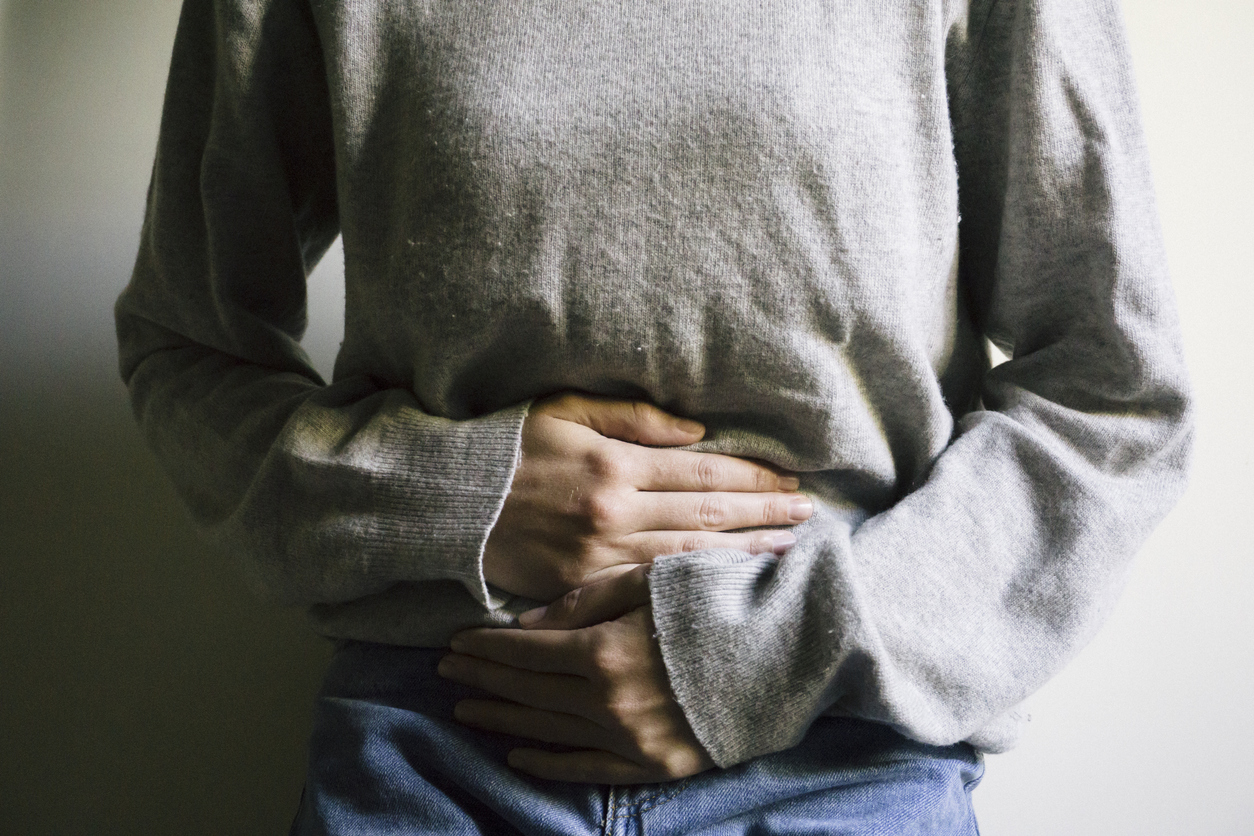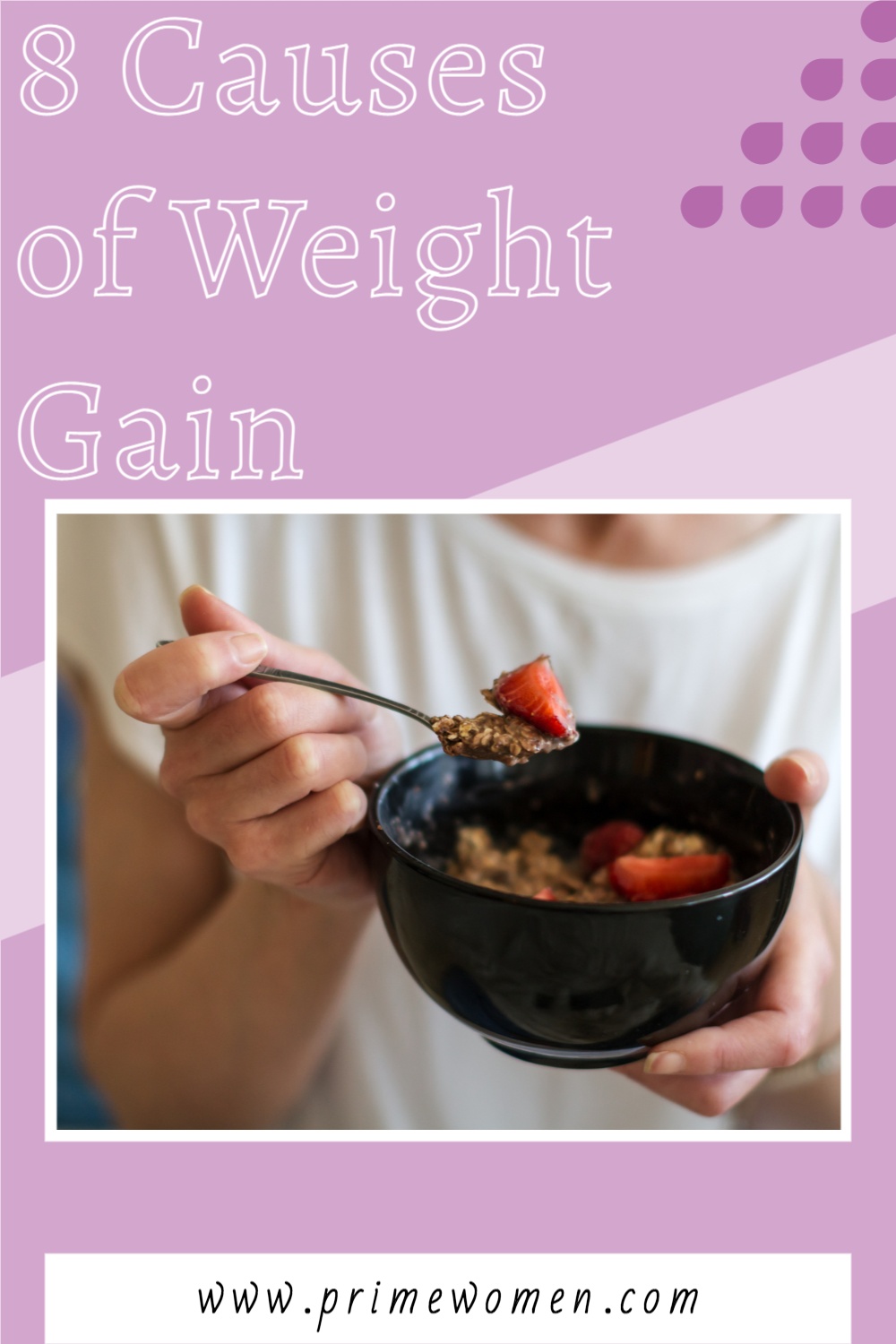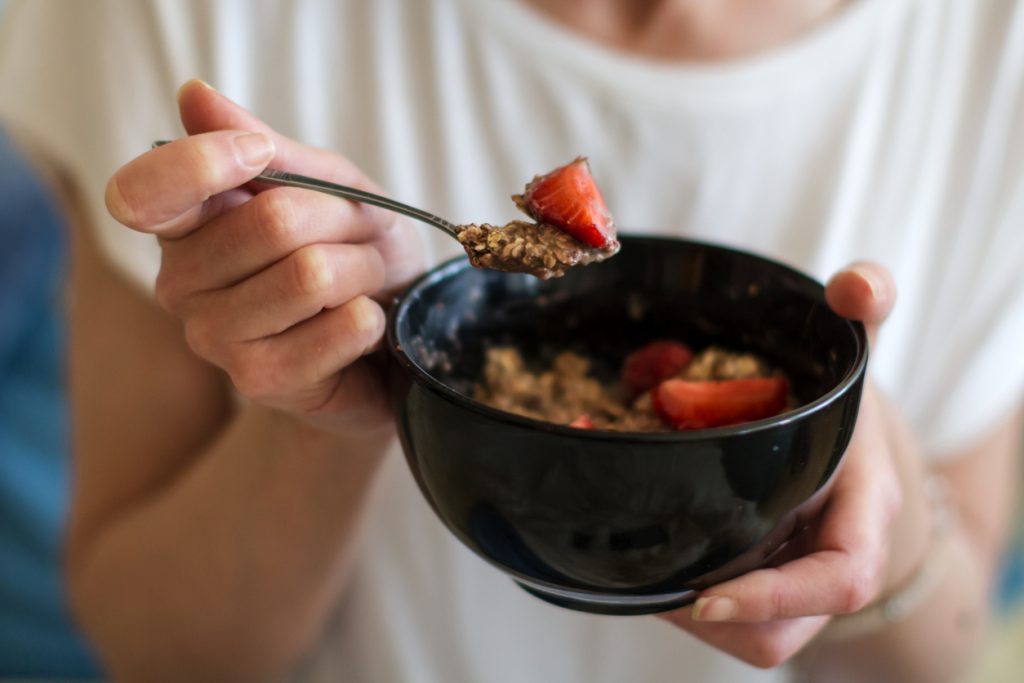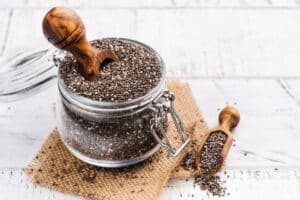Do you keep weight on even though you are eating healthier foods than you used to? Join the club. There’s little more depressing than mentally and physically toughing out a diet, only to see no results. Or worse, you’ve actually added a pound or two. There could be several factors at play, so let’s go through the causes of weight gain one at a time.
8 Causes of Weight Gain
1. When are you eating?
Facts are facts, except when they aren’t. Research has always said that people who skip breakfast are often more overweight than those who don’t skip that important meal. The wisdom said that breakfast kick starts your metabolism and raises your body’s blood sugar level, which helps your muscles and brain work their best. Then along came circadian rhythms and intermittent fasting. The new science says our bodies have our own rhythms and we should eat according to the times when we are actually hungry. So eating at the wrong time for you could be early, but more likely, the real problem is eating at night! Setting a window of time where you consume your meals is the best bet and starting your fast earlier in the evening rather than late will serve you well.
2. How much are you eating?
Even if you have substituted almonds or are eating high fiber grains, watch out. Too many fibrous foods can be one of the causes of weight gain. They cause bloating, gas, constipation—and even excessive binding of minerals so they are unable to be absorbed. An intake of 25-35 grams of total fiber per day is recommended. Almonds, while a good source of vitamins minerals, and healthy fats, have high-calorie content.
Just tracking what you are eating can be helpful. Keep a small notebook handy in your purse, download an app for your phone, or just take a photo of your plate for reference and record everything at the end of the day.
3. Is your gut healthy?
Everywhere you turn, people are talking about good gut bacteria and probiotics. The bacteria in our gut have been shown to impact our weight and can be affected by the use of antibiotics and what we eat. Make sure you are getting pre and probiotics to maintain good gut health. We recommend Essential Formulas’ Dr. Ohhira’s Probiotics® Dr. Ohhira’s digestive health formula is so effective because it is supported by more than twenty-five years of university-based scientific studies. The capsules contain not only live probiotics, but also prebiotics (substances that nourish probiotics), organic acids, and biogenic ingredients that promote a healthy digestive tract.
Meghan Markle (now the Duchess of Sussex) swears by Dr. Ohhira’s probiotics and always carries them with her when she travels. What makes Dr. Ohhira’s Probiotics different from others is the prebiotic culture medium. It’s fermented with live cultures and is exclusively comprised of pure spring water, fruits, wild vegetables, mushrooms, and seaweed. The blend goes through a three-year fermentation process based on ancient Japanese traditions. The final result following the fermentation process is an organic, living fusion that encourages the evolution of your own exclusive internal bacteria. This supports the digestion of crucial micronutrients that your body needs to thrive and flourish.
4. Are your medications one of the causes of weight gain?
According to Louis Aronne, MD, director of the Comprehensive Weight Control Center at Weill Cornell Medical College, “As many as 10% to 15% of weight issues are related to medications,” Medications such as steroids, diabetes medications, and some medications such as beta-blockers and allergy medications can contribute to weight gain. Also, medications used to treat depression, migraines, high blood pressure, and seizures are likely offenders. Of course, you may need to be on these medications to save your life, so don’t stop taking them until you visit your doctor to see if there is a substitution that will work for you. For a list of medications known to cause weight gain in some patients, visit this site.
5. Are your hormone levels out of whack?
So many challenging side effects follow perimenopause and menopause. If you are watching what you eat, exercising regularly, and following the other practices listed here, maybe it’s time to visit your doctor.
Hormone imbalance can make it difficult to lose weight and can even be one of the causes of weight gain.
Ask your doctor to run the necessary tests to take a good look at your hormone levels and make sure everything is in order – or put back in order.
6. Are you getting enough sleep?

Lack of proper sleep contributes to everything from weight gain, to lack of concentration, to high blood pressure. Follow these tips for getting good rest which include keeping your room dark and cool. It will also help you rest better if you don’t eat late at night (typically within two hours of bedtime.) Research shows that people who ate later not only gained weight but their levels of insulin, glucose, and cholesterol rose. Eating late at night can also cause acid reflux, raise your blood pressure and cause you to feel hungrier in the morning.
7. How much are you moving?
We all know the drill. For aerobic exercise, we need 20 or more minutes per session, 3 or 4 days a week. We need strength training and stretching. Try to get 10,000 steps a day in. We have a great article on ideas for accomplishing that. And just because you know you won’t get 10,000 steps in does not mean you should get none! Any bit of movement helps. Try out a standing desk. Talk a walk around the office to talk to someone rather than emailing or phoning. Take stairs instead of elevators. Walk around the block at lunchtime. Just get your body in motion. This will not only help your metabolism, but it will raise your spirits and help you sleep better.
8. Is stress taking its toll?
If you are stressed out, your body is producing cortisol and other stress hormones. That means increased blood pressure, heart rate, and glucose. It also increases your desire to eat. According to Pamela Peeke, MD, assistant professor of medicine at the University of Maryland, your body reacts to stress with survival, or “fight-or-flight” mode. Guess what? Fight or flight mode means your body wants to overeat because it thinks it’s used up calories dealing with the stress, even though it hasn’t. (Why can’t it be that our bodies actually DO burn calories when we’re stressed? Then we’d all be model thin.)
Keep stress levels in check with mindful breathing, meditation, yoga, stretching, more breathing, sleep, exercise, and bubble baths. (Okay, we threw in the bubble bath one for fun, but if bubble baths relax you, then they fit the bill.)
Want to give intermittent fasting a try? Take a look at Prime Women’s PLATE program. Now available in an app on Apple or Android with reminders to keep you on track.
Read Next:
How to Break A Weight Loss Plateau
How To Lose Weight After Menopause










